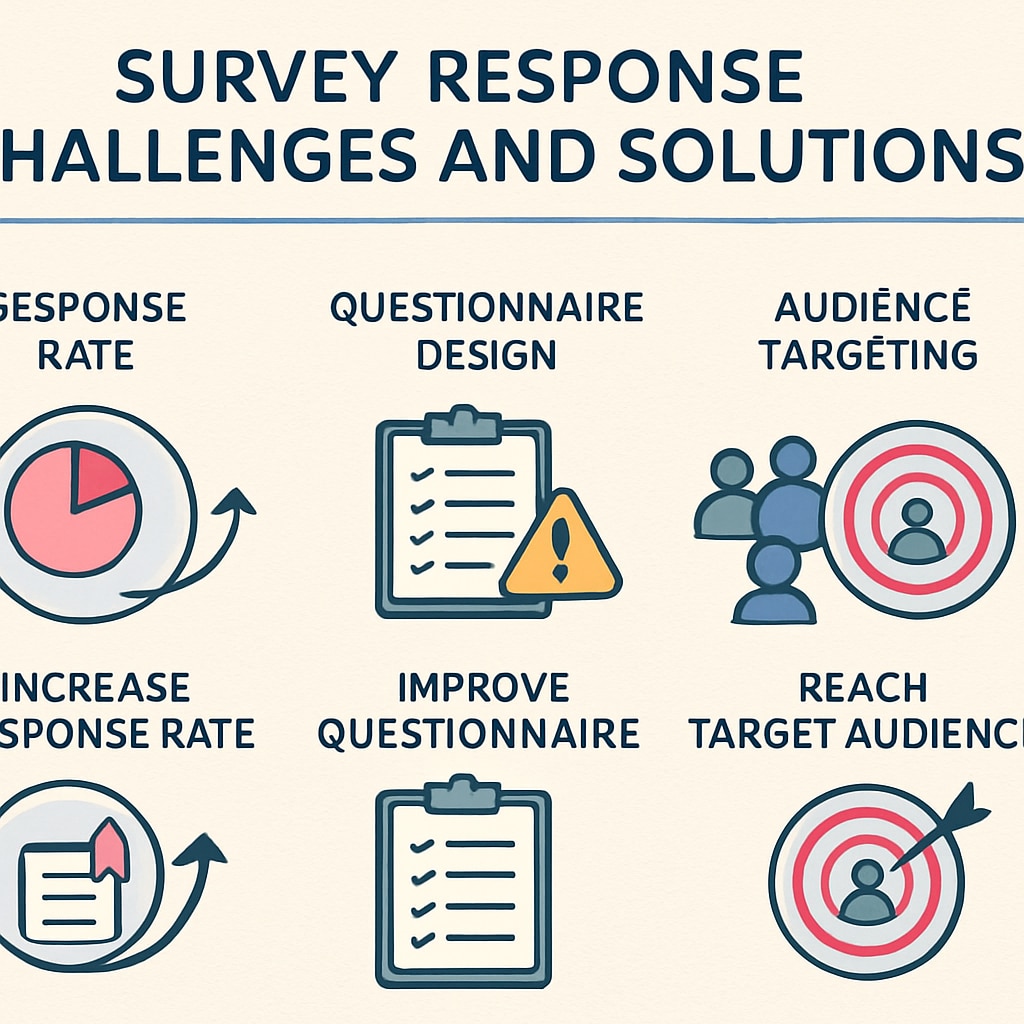Conducting survey data collection for a master’s thesis on tourism short videos can be both rewarding and challenging. Researchers often encounter difficulties such as low response rates, designing effective questionnaires, and ensuring accurate representation of their target audience. These challenges can significantly impact the quality and reliability of the findings, making it crucial to adopt effective strategies to overcome them.

Common Challenges in Survey Data Collection
Survey-based research, especially in the niche area of tourism short videos, faces unique hurdles. Understanding these challenges can help researchers prepare better and mitigate issues before they impact the study.
- Low Response Rates: One of the most common issues is getting participants to complete the survey. Factors such as lack of interest, time constraints, or survey fatigue can contribute to low engagement.
- Questionnaire Design: Poorly designed surveys can lead to ambiguous answers, incomplete responses, or even participant drop-offs. Ensuring clarity and relevance in questions is critical.
- Target Audience Reach: Tourism short videos often appeal to specific demographics, such as avid travelers or social media users. Identifying and accessing this group can be difficult without proper tools or platforms.
- Data Accuracy: Participants may provide biased or inaccurate responses due to misunderstandings or social desirability bias.
As a result of these obstacles, researchers may experience delays or limitations in their ability to draw reliable conclusions from the gathered data.

Strategies to Improve Survey Participation
To overcome these challenges, researchers can adopt several practical solutions tailored to their study’s needs and target audience. Here are some effective strategies:
- Leverage Online Platforms: Social media platforms and tourism forums can be excellent places to distribute surveys to relevant participants interested in tourism short videos.
- Offer Incentives: Providing small rewards, such as gift cards or exclusive content access, can motivate individuals to participate in the survey.
- Optimize Survey Design: Use clear, concise, and engaging language. Ensure questions are relevant to the research topic and avoid overly complex or technical terms.
- Use Targeted Advertising: Tools like Facebook Ads or Google Ads allow researchers to focus on specific demographics, increasing the chances of reaching the intended audience.
- Follow Up: Sending reminders or follow-up emails can encourage participants to complete surveys they may have initially abandoned.
Ensuring Data Quality and Reliability
Collecting high-quality data is just as important as improving participation rates. Researchers can implement the following practices to ensure the accuracy and reliability of their survey responses:
- Pre-Test the Survey: Conducting a pilot study allows researchers to identify and fix potential issues in the questionnaire design before full-scale data collection.
- Use Clear Instructions: Providing detailed guidance on how to complete the survey can minimize misunderstandings and errors.
- Include Validation Questions: Adding control questions can help identify inconsistent or unreliable responses.
- Ensure Anonymity: Guaranteeing participant anonymity can reduce social desirability bias and encourage honest responses.
- Analyze Data Thoroughly: Employ statistical tools to detect anomalies or patterns that may indicate biased responses.
By combining these strategies, researchers can build a robust process that maximizes the quality and quantity of their survey data.
Final Thoughts and Future Directions
Survey data collection for a master’s thesis on tourism short videos requires careful planning and execution. While challenges such as low response rates and targeting specific demographics are prevalent, employing the right strategies can significantly improve outcomes. As digital platforms continue to evolve, future researchers may find new opportunities to enhance data collection methods, particularly in the context of tourism and social media studies.
In conclusion, addressing the challenges outlined above will not only improve the research process but also ensure that findings contribute meaningful insights to the growing field of tourism short videos.
Readability guidance: Use short paragraphs, bullet points, and clear headings to improve readability. Overcome survey challenges with actionable strategies, ensuring concise yet comprehensive coverage of the topic.


